Normal Rhyming Worksheets for Ages 5-9
13 filtered results
-
From - To
Discover the perfect "Normal Rhyming Worksheets for Ages 5-9" at Kids Academy! Our engaging resources are designed to enhance phonemic awareness and literacy skills in young learners. Each worksheet offers fun activities with vibrant images, helping children identify rhyme patterns and sounds effortlessly. Created by educational experts, these printables not only boost vocabulary but also foster a love for reading and creativity. Suitable for classroom use or at-home practice, they cater to various learning styles, making early education enjoyable and effective. Introduce your child to the charming world of rhymes and watch their confidence soar!


Rhyming Words: Assessment Worksheet


Rhymes in Poems Worksheet
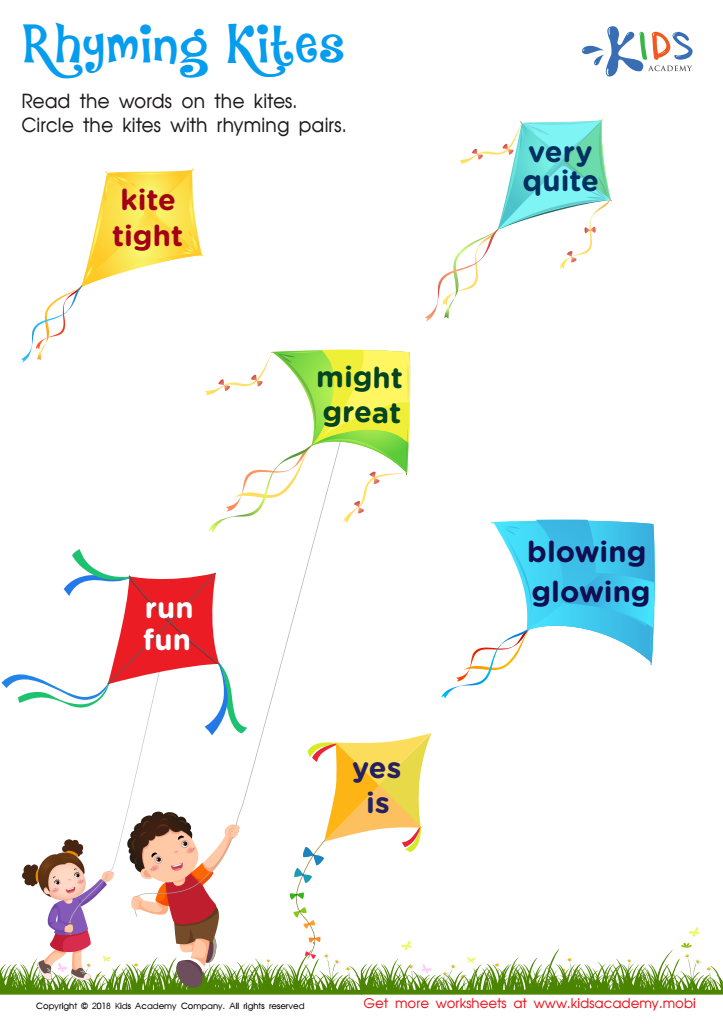

Rhyming Kites Worksheet
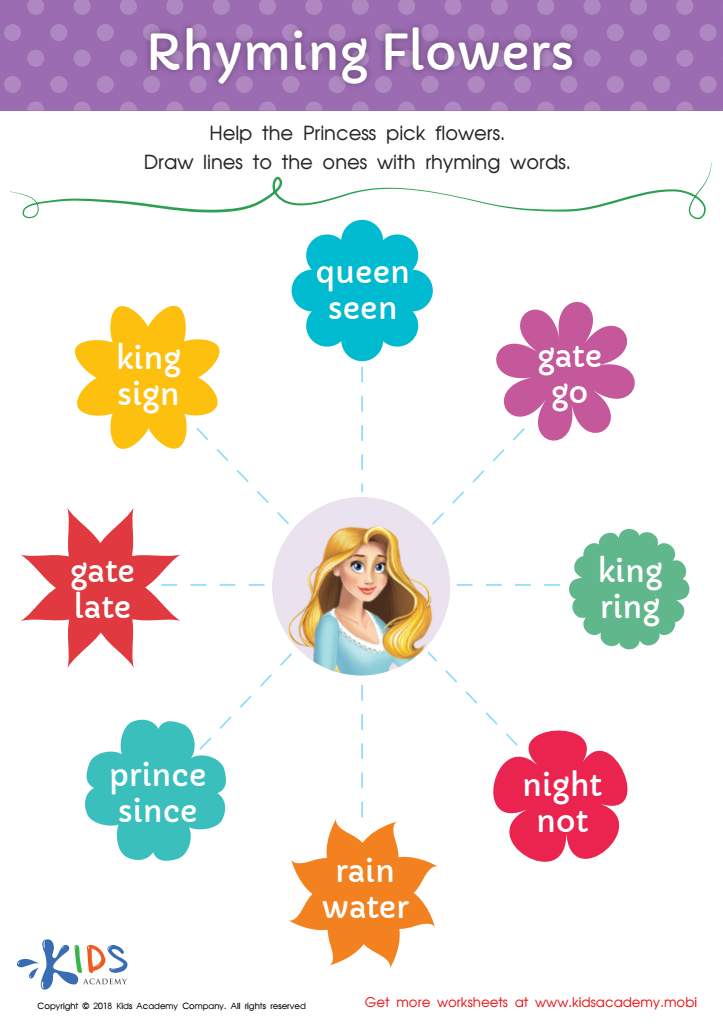

Rhyming Flowers Worksheet


Rhyming Words Rhyming Worksheet
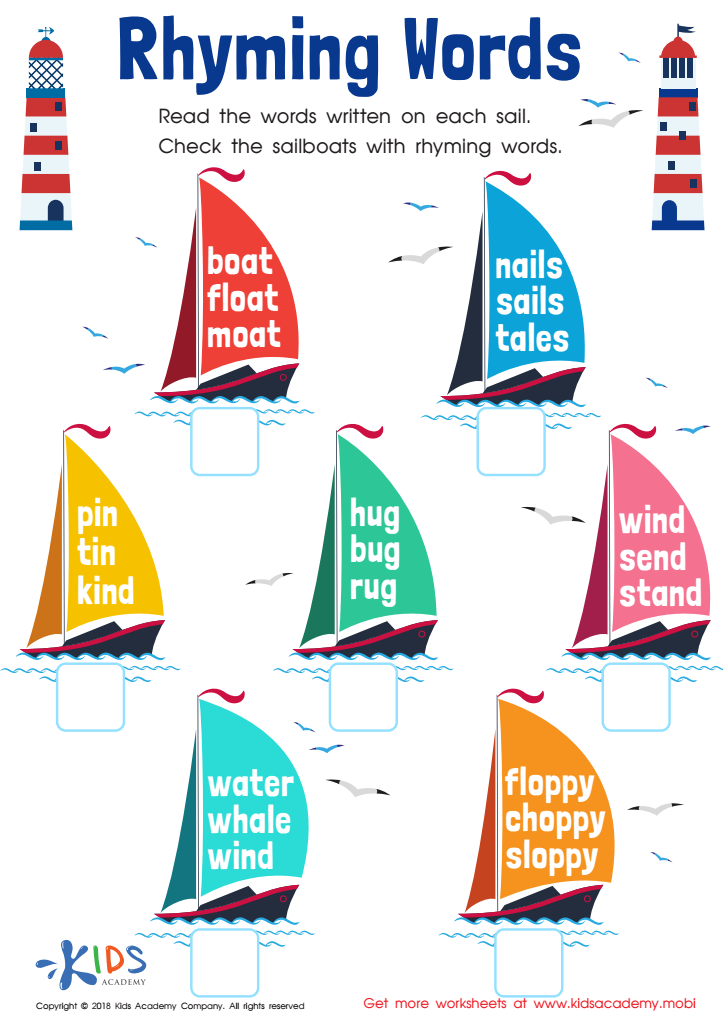

Rhyming Words Worksheet
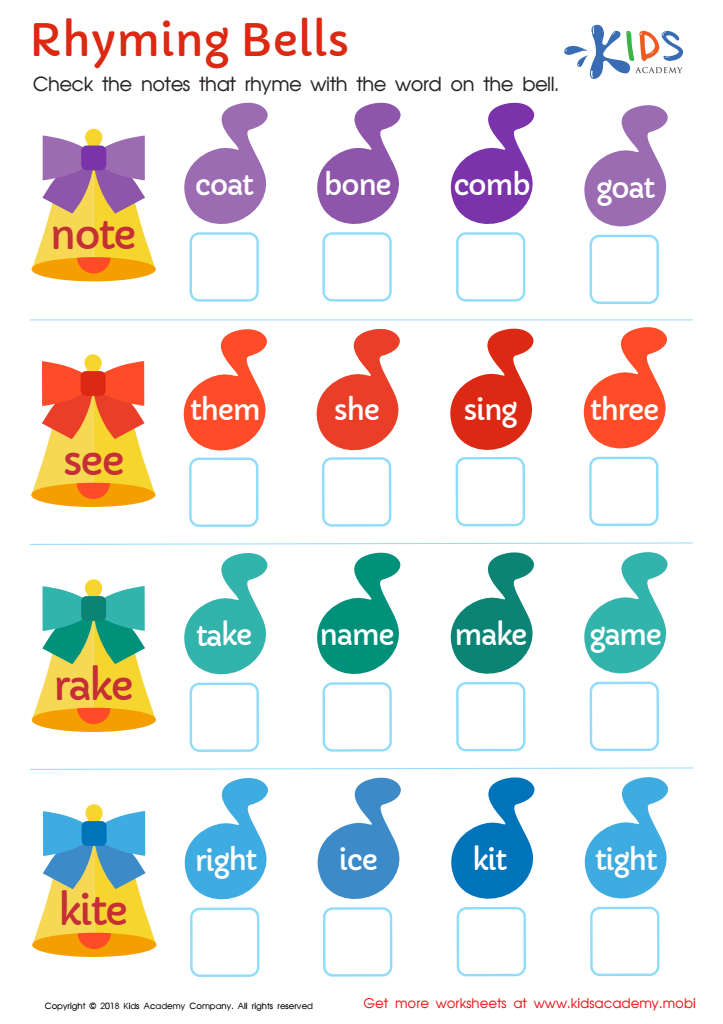

Rhyming Bells Worksheet


First Words: Picture Rhymes Worksheet
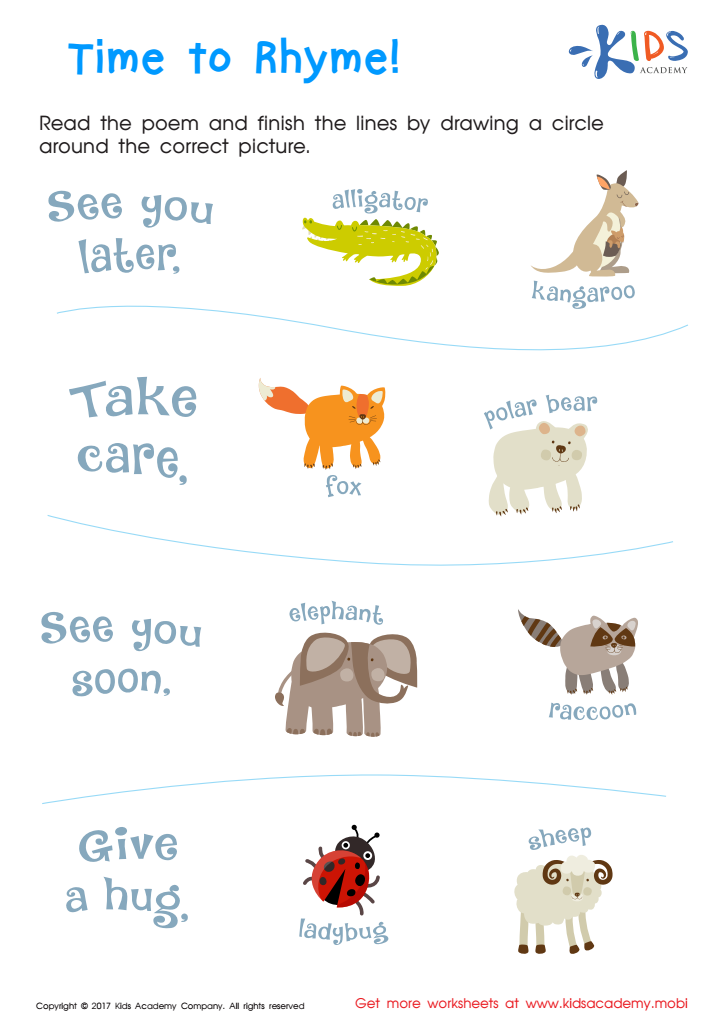

Time to Rhyme Rhyming Worksheet
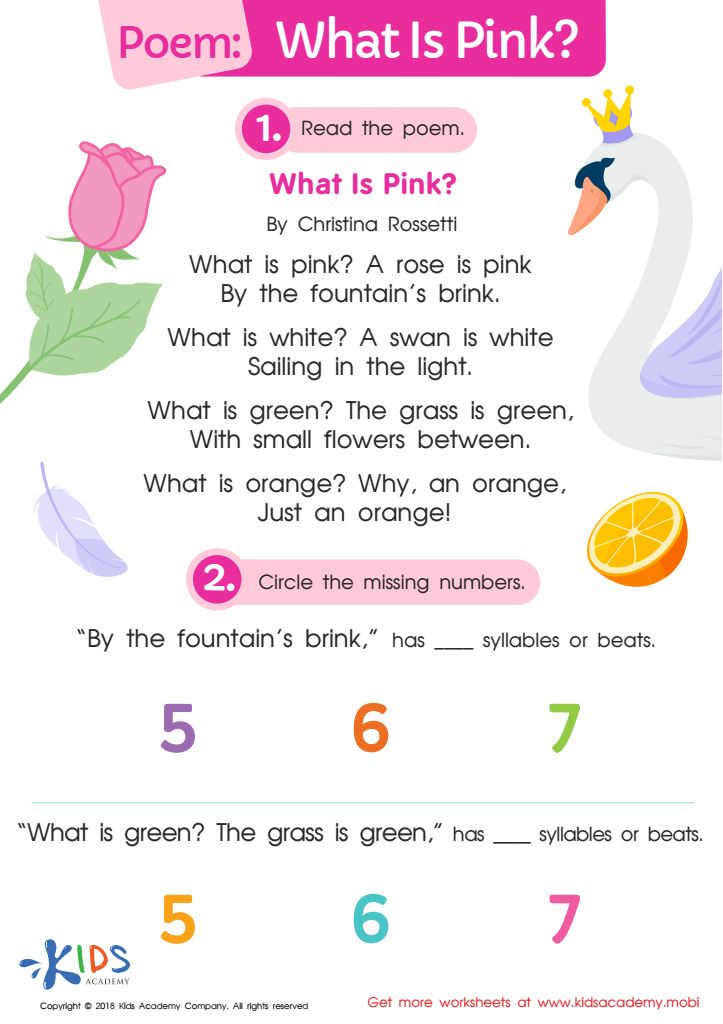

Poem: What Is Pink? Worksheet
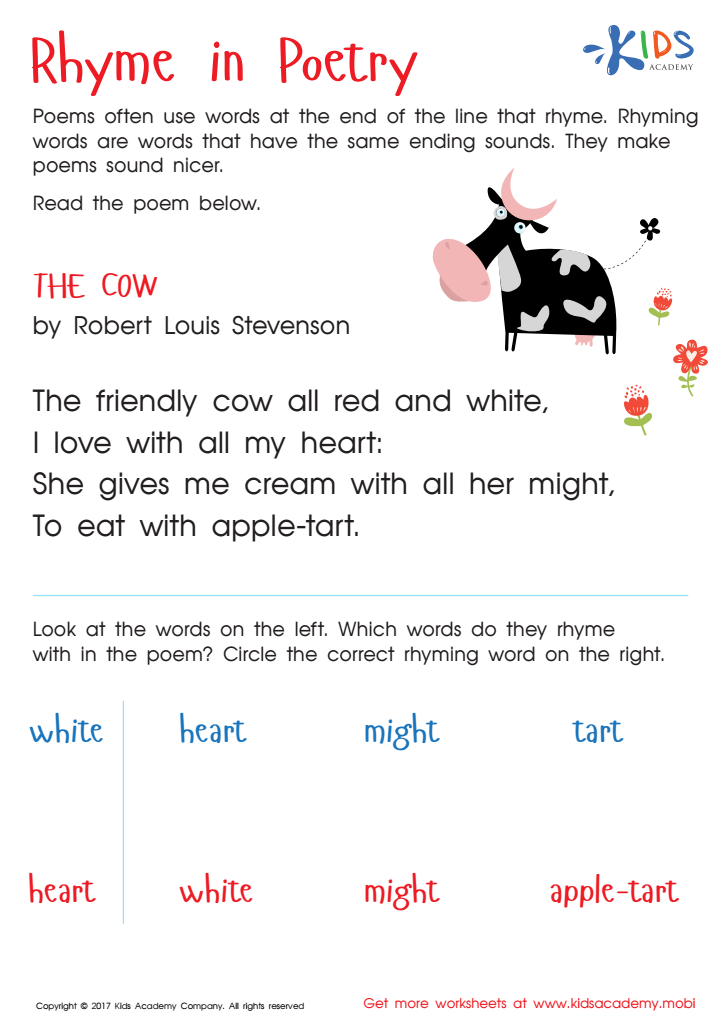

Rhyme In Poetry Worksheet
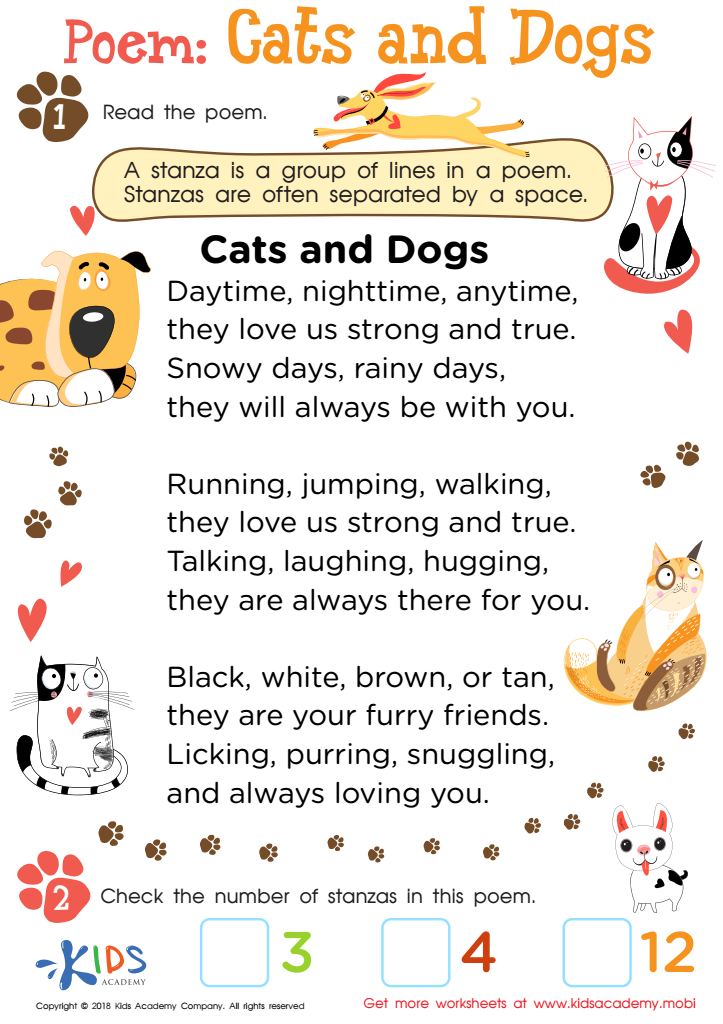

Poem: Cats and Dogs Worksheet
Rhyming is a fundamental skill for young children, especially those aged 5-9, prone to boosting their early literacy development. Parents and teachers should prioritize normal rhyming activities because they play a crucial role in enhancing phonemic awareness, which is the ability to identify and manipulate sounds in words. This skill is foundational for learning to read and spell effectively. Rhyming helps children recognize patterns in words, make predictions, and improve memory recall—all essential components in reading proficiently.
Moreover, engaging in rhyming activities fosters a love for language and literature, as they usually involve playful and enjoyable interactions, such as singing songs, reading rhyming books, or reciting nursery rhymes. This can motivate children to explore books on their own, promoting lifelong reading habits and a deep appreciation for language.
Rhyming also provides a communal experience, acting as a bridge between language, rhythm, and social interaction. Group rhyming games and activities can improve children’s social skills, turn-taking, and cooperation. A strong grasp of rhyming lays the groundwork for mastering more complex language skills later on, such as storytelling, creative writing, and deeper textual comprehension.
In summary, prioritizing normal rhyming activities during these early years significantly supports children’s phonemic insight, fosters a joyous reading culture, and bolsters their social and emotional development.

 Assign to My Students
Assign to My Students





















